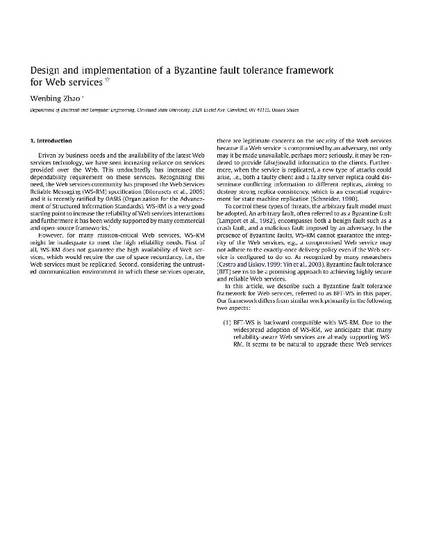
Many Web services are expected to run with high degree of security and dependability. To achieve this goal, it is essential to use a Web services compatible framework that tolerates not only crash faults, but Byzantine faults as well, due to the untrusted communication environment in which the Web services operate. In this paper, we describe the design and implementation of such a framework, called BFT-WS. BFT-WS is designed to operate on top of the standard SOAP messaging framework for maximum interoperability. It is implemented as a pluggable module within the Axis2 architecture, as such, it requires minimum changes to the Web applications. The core fault tolerance mechanisms used in BFT-WS are based on the well-known Castro and Liskov’s BFT algorithm for optimal efficiency. Our performance measurements confirm that BFT-WS incurs only moderate runtime overhead considering the complexity of the mechanisms.
